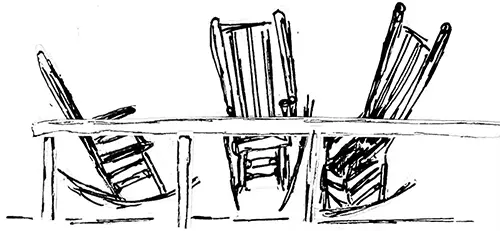The Nightstand 453
Learning to Love a Nation: A Review of Richard Mouw’s How to Be a Patriotic Christian
Siloam Springs, AR. Earlier this month Americans celebrated yet another Fourth of July, marking 246 years of independence. As we approach the country’s semiquincentennial, talk of nationalism and patriotism is…
Chronicling Conservatism Rightly: A Review of The Right
Continetti’s rendition is distinctive in its focus on the tension and recurrent clashes between an increasingly radicalized populist grass roots and movement elites committed to a principled small government constitutionalism.…
Who is Tom Bombadil? In Search of the “One-Answer-To-Rule-Them-All”
Wiley, throughout his book, handles the paradoxes and tensions of Tolkien’s text not as inconsistencies to be brushed aside, but rather as brushstrokes of a master artist at work. For…
Every Town has a Story Worth Saving: A Review of Hello, Bookstore
Establishments like The Bookstore, when at their best, are not exclusively or perhaps even primarily in the business of providing people with printed texts. They are places in which proprietors…
Planting and Tending the Lost Seeds of Learning
Donnelly’s scope of transformation may seem like an impossible undertaking, yet even if it is not possible for everyone to achieve the level of faith integration suggested here, anyone can…
Parishes Need Pastor-Readers
I hope pastors read this book. But more than that, I hope it finds its way into the hands of examining chaplains and board elders, of district superintendents and seminary…
Atoms and the Void: A Review of Interventions 2020
The idea presiding in Houellebecq is that the worship of individual autonomy destroys love. If love is the meaning of life, then a society bent on autonomy for its members…
The Many Traditions of Tolkien
This Realness, a touch of authentic mythology--much like Niggle who finally saw the Real Tree he had modeled his painting after throughout his life without knowing it--comes alive when the…
Plutocratic Socialism and the Corruption of Democracy
Mark Mitchell's book is the latest title published under the FPR Books imprint. If this excerpt whets your appetite, do order a copy of Plutocratic Socialism: The Future of Private…
Mediated by Christ: A Review of From Isolation to Community
A number of Werntz’s suggested practices—e.g., regular use of corporate and pre-written prayers, and identifying with a classic confession of faith rather than a mission statement—are already common in many,…
The Banalities of “the Birth of Modern Agriculture”: A Review of Neil Dahlstrom’s Tractor Wars
All of the biases, all of the bloodlessness, and all the banalities of Tractor Wars, I suggest, are the products of a whole way of thinking about technology, agriculture and…
P.G. Wodehouse and the Idea of Genius
We might not use the word “genius” in all these contexts, but the mystery is the same. Where did this exceptional ability come from? Is it just another trait like…
Your Brains are in Your Hands: Doug Stowe on Forming Mind, Hand, and Culture
Stowe’s book is both timeless and timely. Our physical embodiment as human creatures is always essential, but it is especially so amid increasing digitality. The last two years of pandemic-related…
Living When We Are: A Review of Brisbane
Vodolazkin's novels do for Time what Wendell Berry does for Space: We can't just live where we are, we have to live when we are, too. So thanks to Vodolazkin…
The Front Porch as a Way of Seeing: A Review of The Porch
There is a significant difference between staring at a computer screen and seeing the world through a porch screen. Hailey emphasizes the benefits of seeing from the “threshold between stability…
Localism and the War on Drugs: A Review of The Least of Us
For Quinones, the twin opioid and meth epidemics have their origins in the destruction of community. The decline of local institutions creates a vacuum of isolation and hopelessness in which…
Common Good and Bad Ideas
By reducing the value of words and, hence, constitutions, common good constitutionalism seems even more likely to veer into the dangerous realm of personal preference-based decision-making. Many figures could be…
Consent to be Used or Vow to Love: a Review of Christine Emba’s Rethinking Sex
What Emba most successfully conveys throughout the entirety of her brief book is an awareness that we are never “our own.” This is certainly right, but she does not go…
Tending a Rooted Congregation: A Review of The Power of Place
If “church” is the body of Christ in its local manifestation, where each and every member is connected to one another and everyone knows each other’s names and stories, have…
Seeing the Midwest New: A Review of The Everlasting People
It is perhaps that personal search for contentment that makes this book a notable contribution to the literature on the American racial problem: Milliner’s “penitent Midwest regionalism” is first of…
Allowing a Little More Room for Subsidiarity: A Review of Adrian Vermeule’s Common Good Constitutionalism
Harvard Law School produces many of our future rulers, and it may be better for us if aspiring federal administrators learn from Vermeule at least the presumptive desirability of honoring…
In Defense of Nature Writing
Perhaps this, above all, is the work of nature writing: to bring the wild and the domestic together and to reveal the mystery at the heart of both. That Springer’s…
Ayn Rand: Russian Nihilist
Aaron Weinacht’s book is a needed corrective to the public misperception of Ayn Rand as radical capitalist. She was, first and foremost, a radical nihilist. Insofar as Rand embraced capitalism,…
Who Loves Academic Discourse? A Review of Rita Felski’s Hooked
Attunement, attachment, engagement, and identification are all absolutely necessary for properly considering artworks of all kinds. However, I struggle to identify the application of Felski's argument. Perhaps it is because,…




















